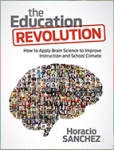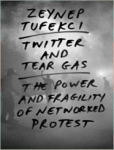
| Second Semester 2017-2018 |
| Title |
Krause`s food & the nutrition care process
|

|
| Author | Mahan, L. Kathleen and Raymond, Janice L. | |
| Call Number | RM216.K73 2017 | |
|
Presents the most cutting-edge and up-to-date dietetics content available in this ever-changing field. Nicknamed the "nutrition bible", students and practitioners alike turn to its current, comprehensive content, engaging pedagogy and design, and logical presentation of information. Written by nearly 50 nationally recognized writers, researchers, and practitioners, it covers nutrition assessment and intervention, the nutritional needs of individuals in different stages of the life cycle, nutrition for health and fitness, and medical nutrition therapy.
|
||
| Title |
The education revolution : how to apply brain science to improve instruction and school climate
|

|
| Author |
Sanchez, Horacio
|
|
| Call Number | LB1062.S3117 2017 | |
|
Brain research has the power to revolutionize education, but it can be difficult for educators to implement innovative strategies without the proper knowledge or resources. The Education Revolution bridges the gap between neuroscience, psychology, and educational practice. It delivers what educators need: current and relevant concrete applications to use in classrooms and schools.
|
||
| Title |
Twitter and tear gas : the power and fragility of networked protest
|

|
| Author |
Tufekci, Zeynep
|
|
| Call Number | HM742.T84 2017 | |
|
To understand a thwarted Turkish coup, an anti–Wall Street encampment, and a packed Tahrir Square, we must first comprehend the power and the weaknesses of using new technologies to mobilize large numbers of people. An incisive observer, writer, and participant in today’s social movements, Zeynep Tufekci explains in this accessible and compelling book the nuanced trajectories of modern protests—how they form, how they operate differently from past protests, and why they have difficulty persisting in their long-term quests for change.
Tufekci speaks from direct experience, combining on-the-ground interviews with insightful analysis. She describes how the internet helped the Zapatista uprisings in Mexico, the necessity of remote Twitter users to organize medical supplies during Arab Spring, the refusal to use bullhorns in the Occupy Movement that started in New York, and the empowering effect of tear gas in Istanbul’s Gezi Park. These details from life inside social movements complete a moving investigation of authority, technology, and culture—and offer essential insights into the future of governance. |
||